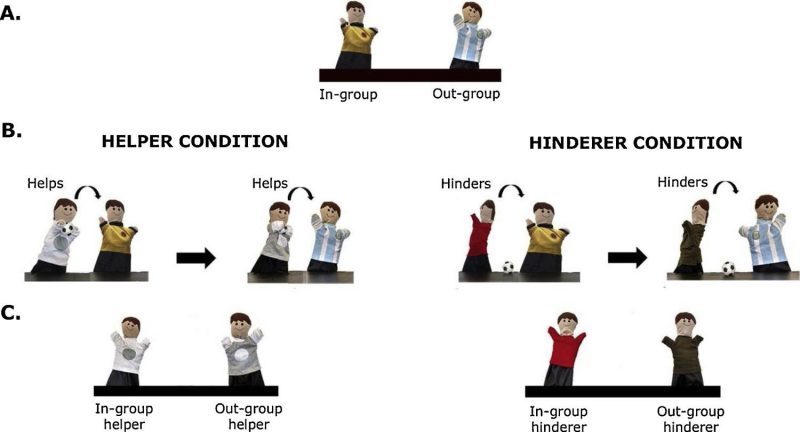13 de abril 2020
Abstract:
Some forms of cooperative helping do not bind people from a moral perspective but ensure the functioning of social groups. Here, we have assessed how children coordinate such nonobligatory social concerns with group identity concerns. We have performed three studies (3–11-years-old; N = 393) aimed at testing children’s peer preferences and resource allocation toward neutral individuals that engage in helping and hindering behaviors toward in-group and out-group peers. In Study 1, we have found that, in helping contexts, children prioritized group concerns and exhibited in-group favoritism. In hindering contexts, they privileged helping norms and did not exhibit out-group derogation. In Studies 2 and 3, we have confirmed that transgressions of cooperative helping norms outweighed intergroup bias. Our results suggest that, when cooperative helping norms conflict with group identity concerns, helping norms take priority. When these principles are coextensive and not in conflict, children give priority to group concerns.


